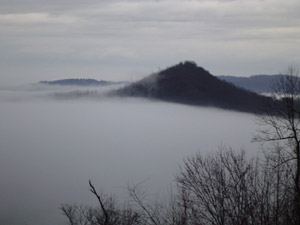Revival Stories
Revivals of the Carolinas: The Moravian Effect (Part 3)

The Moravian revival, which had begun in 1727 under Count Zinzendorf, had ignited in their community an extraordinary prayer life and also an intense commitment to world missions. It was as if God had irresistibly invited them to greater depths of intimacy with Himself while also revealing His fervent heart for the lost. It was not too long before they launched a non-stop prayer watch in their midst and sent out their own evangelists into the world.
As the Moravians spread out across the globe as missionaries, they left a far bigger impact than most people realized. When they first came to the Americas in 1735 to start a colony in Georgia, it did not work out because of nearby military conflicts. Yet, even during this setback, the Moravians impressed many onlookers with their strong work ethic and their resilient faith in Christ. They eventually established a settlement in Pennsylvania in 1741, which they named Bethelehem.
God continued to give favor to this faithful group of believers. When the British government officially recognized the Moravian Church in 1749 as having legal status alongside the State Church of England, it opened up new doors for sponsors and funding. When the Earl of Granville, who held vast tracts of land in the Carolinas, was looking for potential settlers for a new colony, he heard about the hard-working and morally-outstanding Moravians. He would, in due time, offer to sell to them 100,000 acres of land in North Carolina at a very good price. The Moravians would call this land area Wachovia.
They sent out a party of explorers in 1752 to find locations that they could establish their villages unto the Lord. It was an arduous journey over several months, filled with hundreds of miles of forest and mountains, battling with mosquitoes and disease, and even getting lost for a time. They travelled as far northwest as Boone, then got redirected to the area of present-day Moravian Falls, and finally found an ideal location that would one day be the city of Salem. As they establishednew towns, they continued to worship God enthusiastically and to pray without ceasing. Wherever they could, they would continue the practice of 24-7 prayer. Some might say that their prayers unto Heaven paved the way for future revivals in the Carolinas.
All during this time, they would also seek every opportunity to take the Gospel to nearby colonists, to the American Indians, and to the slaves, By the 1800’s, the Moravians would set up missions work among the Cherokee Indians in North Carolina. When many of the Cherokees were forcibly moved in 1838 along the “Trail of Tears” to Oklahoma, several Moravians uprooted themselves and re-located with them in order to keep on ministering to them. During this time, God would use the Moravians to establish a new work among the African slaves in Salem and elsewhere.
The city of Charlotte, North Carolina, is located just about 80 miles south of Moravian Falls. Over the years, the city developed and kept growing to become the largest city in the state. Some Moravians made their way to Charlotte and settled there. By 1897, it was observed that a “hearty” community was developing there. In 1920, the Moravian bishop Rondthaler established their first church in Charlotte, built on donated land in the Myers Park neighborhood. It would go on to significantly impact the city for Christ through the newspaper, radio, and Easter events. As the Moravians have stayed anchored in God’s Word, fixed upon Christ, wedded to unwavering prayer, and commited to missions worldwide, they have been used by God to prepare the way for God’s Kingdom work and for the revival-to-come.
QUESTIONS TO DISCUSS:
- What impresses you about what God did through the small refugee community of Moravians in America?
- Why do you think God showed incredible favor in their endeavors?
- The Cherokee “Trail of Tears” is undoubtedly a great tragedy in American history, causing much grief and suffering. Yet, the Moravians joined them as refugees transplanted to another state. What kinds of questions and concerns probably went through the minds of the missionaries who gave up all that was familiar to care for these people?
- What do you think it will take to receive an abundant blessing from the Lord on your own church? What needs to change in people’s heart? In their thinking? In their actions?